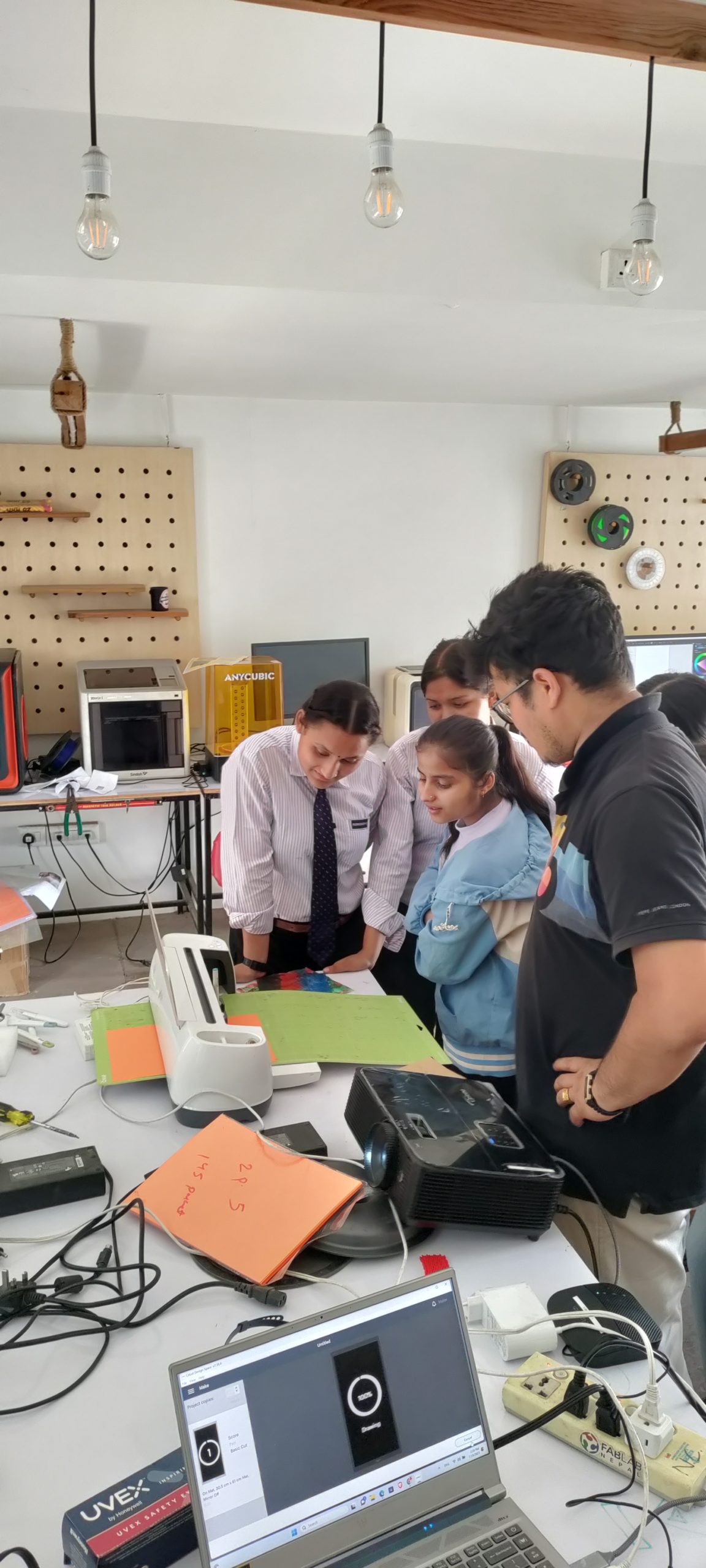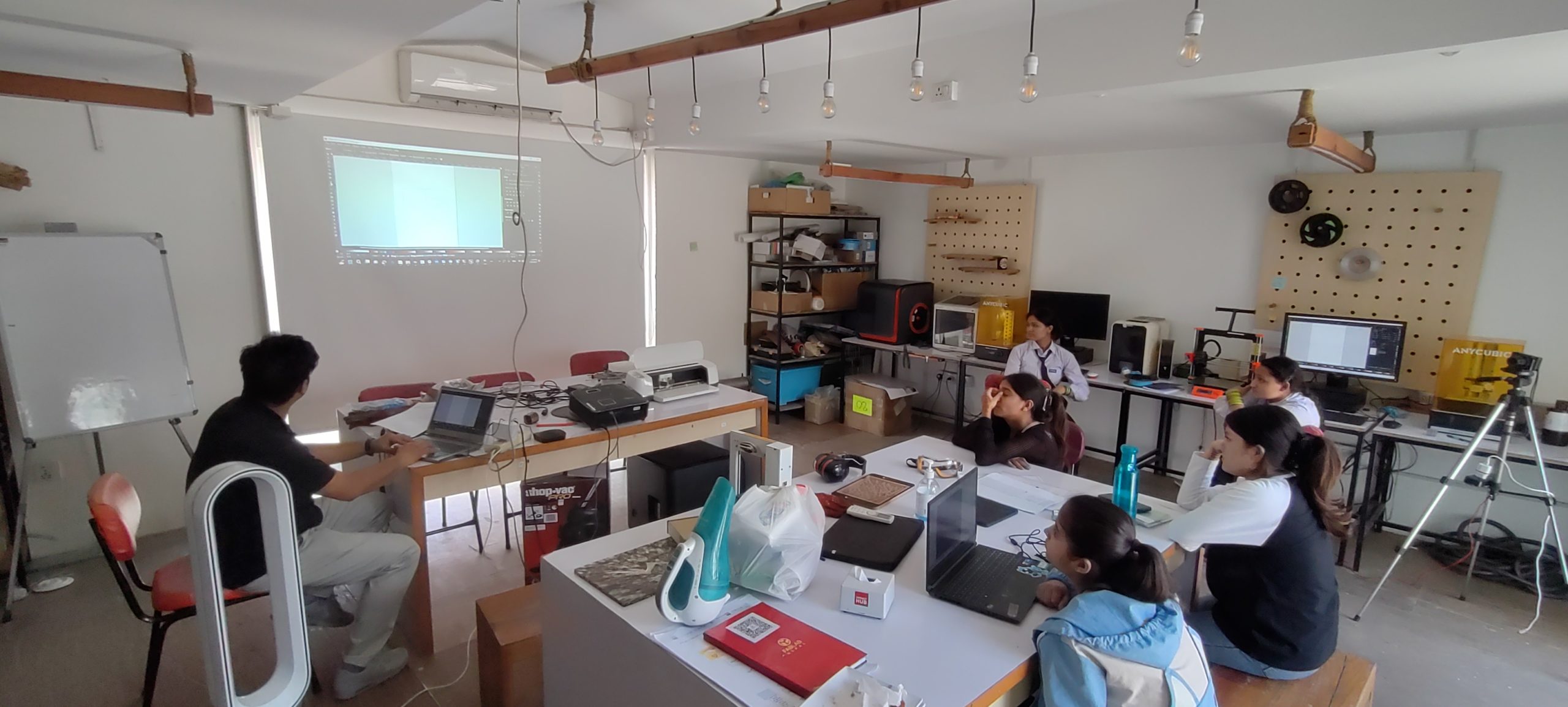Makerspaces are informal multipurpose sites designed for collaborative hands-on learning and creative production, with or without tools. These innovative learning spaces offer the opportunity to share materials, skills and ideas to address technological, personal, community and societal goals. Makerspaces can improve participation in STEM (Science, Technology, Engineering and Mathematics) Education, also for marginalized communities. FabLab Nepal functions as such a makerspace for humanitarian purpose in Nepal, working towards using its own makerspace for members of under-represented communities. To further unfold this potential of makerspaces, FabLab Nepal is proud to be one of the four collaborating partners in world for ‘The Making Spaces Project’ of the University College London, led by Professor Louise Archer under the financial support of the Lloyd’s Register Foundation.

The Making Spaces Project aims at gaining new insights on how to improve makerspaces worldwide and unfold their potential to grant access to STEM-education to under-represented communities. Pairing workshop sessions with simultaneous research will be the foundation for uncovering potential weaknesses and obstacles on the path to inclusive and participatory makerspaces. This shall then form the base for developing an equitable practice in makerspaces across diverse international contexts. The Making Spaces Project concluded its first phase year before which was conducted on a national level in the UK from 2020–2022. Phase 1 has laid the groundwork for Phase 2 now by evaluating workshops in British makerspaces and developing an equity compass which the international partners are now putting into practice in their respective environments to further elaborate on best practices for equity in makerspaces.
Beyond the actual STEM – Education, the Making Spaces Project also aims at teaching the participants necessary soft skills like critical thinking and teamwork. The workshops will be conducted with the youth rather than for them, taking their feedback and honest opinions into consideration to constantly improve the quality of the sessions and create an informal setting in which everyone can learn at their own pace. This is with aim to provide job-related skills and expertise among young people in Nepal and increase employability and retention in country. As many youths from Nepal go abroad for their education, FabLab Nepal aims at conveying a new perspective on education to the participants of the Making Spaces Project, encouraging their feedback and participation in the process of learning.
Similarly, all partners of the Making Spaces Project are contributing by running makerspace workshops in different environments. Working in a country highly dependent on foreign aid and imports, FabLab Nepal’s work and research is designed to bear insights on makerspaces in this type of environment adapting to the challenges faced in Nepal.
FabLab Nepal’s Work on the Making Spaces Project So Far
FabLab is currently conducting workshops on digital fabrication providing students of Padmodaya Government School in Kathmandu free STEM-education. So far 6 out of 12 workshops, starting from the tenth of April, have been completed with 5 participants. The participants are giving our team feedback after every session so that we can adapt to any upcoming challenges and learn from these as part of our research for the Making Spaces program.
The participants of the group have also been selected as Co-researchers. They are additionally getting research skills and attending workshops directly conducted by the UCL team. The co-researchers will help collect data and information about how young people experience the programs they are involved in at makerspaces.
The youth co-researcher will be sharing their views and feedback on the project materials and resources that are produced, such as reports and videos, to make sure that these reflect young people’s interests and views!

The sessions so far have covered the following topics:
Session 1:
– Introduction and Tour of FabLab
– Introduction to FabLab’s machines and their uses
Session 2:
– Machine safety
– Introduction on different software like Inkscape
Session 3:
– Working with Inkscape
– Reflection and discussion of Session 2
Session 4 and 5:
– Awareness on Plastic Pollution and Recycling
– Introduction on different Types of Plastic Recycling and Plastic Recycling Machines
Session 6:
– Further training on the use of Inkscape
– Introduction and use of Cricut machine

After the completion of these workshops, we hope to see our participants continue on their educational path with a higher confidence and interest in scientific learning. The results of our research will be sent to the researchers of UCL to help them deepen their understanding on equity in makerspaces and develop improved best practices for inclusive STEM-Education.
In the future, we are planning on further cooperations with students at government schools as a part of the Making Spaces Project. If you are engaged or can connect us to government schools around the Pulchowk area who are in need of STEM-education opportunities, feel free to reach out to us!